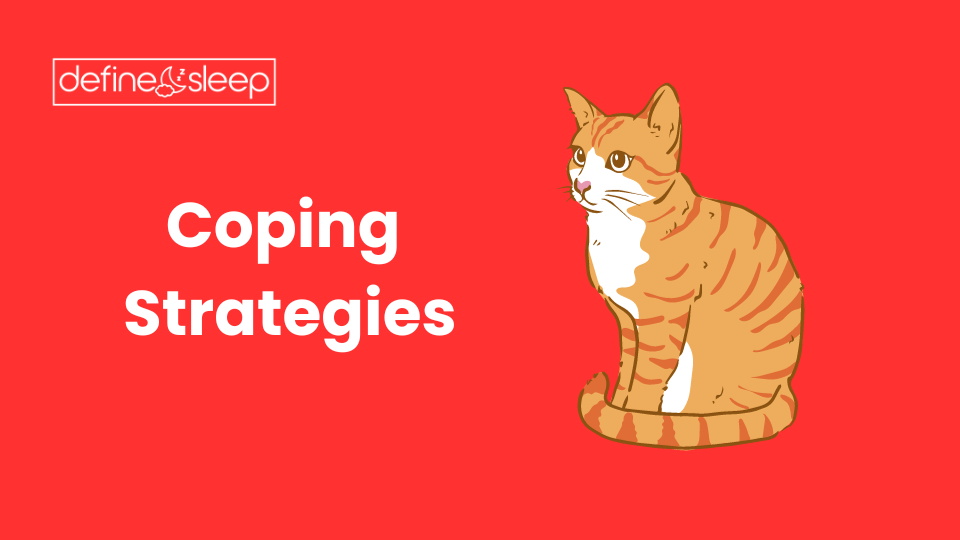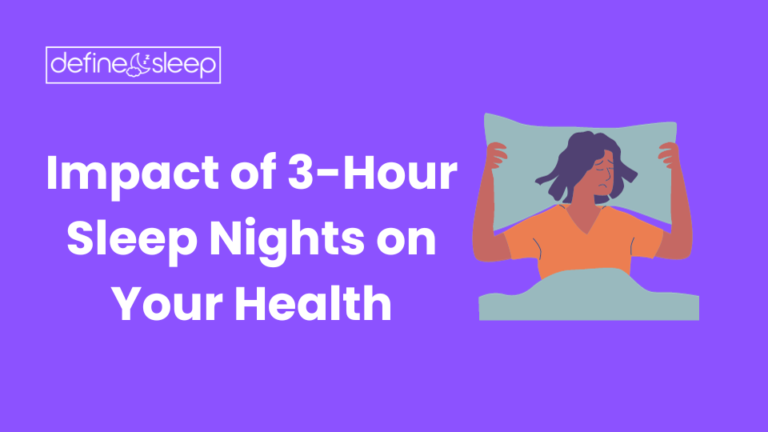Introduction
Sleep often takes a back seat to busy schedules and demanding lifestyles in our fast-paced world. While adults’ recommended amount of sleep is generally 7-9 hours per night, some people consistently get only 3 hours of sleep. This raises an important question: What happens when you regularly get such minimal sleep? This article will explore the psychological and biological implications of consistently getting only 3 hours of sleep per night.
1.1: The Psychological Toll:

1. Cognitive Function:
Consistently shortchanging your sleep can lead to significant cognitive impairments. Memory lapses, difficulty concentrating, and reduced decision-making abilities may arise among the mental challenges.
2. Mood Disorders:
Sleep and mood are intricately connected. Chronic sleep deprivation is linked to increased irritability, mood swings, and a higher risk of developing anxiety and depression.
3. Stress Response:
Sleep deprivation triggers the release of stress hormones, such as cortisol. Prolonged elevation of these hormones can contribute to heightened stress levels, negatively impacting mental well-being.
1.2: Biological Consequences:

1. Impaired Immune Function:
Adequate sleep is crucial for a robust immune system. Consistently getting only 3 hours of sleep weakens the immune response, making the body more susceptible to infections and illnesses.
2. Metabolic Disruptions:
Sleep deprivation disrupts the balance of hormones that regulate hunger and satiety, potentially leading to weight gain. Additionally, it can contribute to insulin resistance, increasing the risk of diabetes.
3. Cardiovascular Risks:
Chronic sleep deprivation has been associated with an increased risk of hypertension and cardiovascular diseases. The heart and blood vessels benefit from the restoration during deep sleep.
1.3: Coping Strategies:

1. Establishing a Sleep Routine:
Creating a consistent sleep schedule helps regulate the body’s internal clock. Aim to go to bed and wake up simultaneously every day, even on weekends.
2. Creating a Relaxing Bedtime Ritual:
Engage in calming activities before bedtime to signal your body that it’s time to wind down. This could include reading a book, practising meditation, or taking a warm bath.
3. Limiting Stimulants:
Reduce the intake of stimulants like caffeine and nicotine, especially in the hours leading up to bedtime. These substances can interfere with the quality of your sleep.
4. Optimizing Sleep Environment:
Ensure your bedroom is conducive to sleep – relaxed, dark, and quiet. Invest in a comfortable mattress and pillows to create a sleep-friendly environment.
Conclusion:

Consistently getting only 3 hours of sleep per night can profoundly affect your mind and body. The consequences are severe, from cognitive decline and mood disturbances to increased risks of various health conditions. Prioritizing sleep and adopting healthy sleep habits are crucial to mitigating these effects and promoting overall well-being. Remember, quality sleep is not a luxury but necessary for a healthy and fulfilling life.
FAQ

Q1: How does consistently getting only 3 hours of sleep impact cognitive function?
Regularly getting only 3 hours of sleep can significantly impair cognitive function, leading to memory lapses, difficulty concentrating, and reduced decision-making abilities.
Q2: Is there a connection between lack of sleep and mood disorders?
Yes, chronic sleep deprivation is linked to increased irritability, mood swings, and a higher risk of developing anxiety and depression.
Q3: Can consistently getting minimal sleep affect immune function?
Absolutely. Adequate sleep is crucial for a robust immune system, and consistently getting only 3 hours can weaken the immune response, making the body more susceptible to infections and illnesses.
Q4: How does sleep deprivation contribute to weight gain and metabolic disruptions?
Sleep deprivation disrupts the balance of hormones regulating hunger and satiety, potentially leading to weight gain. It can also contribute to insulin resistance, increasing the risk of diabetes.
Q5: Are there effective strategies to cope with consistently getting insufficient sleep?
Adopting a consistent sleep routine, creating a relaxing bedtime ritual, limiting stimulants, and optimizing the sleep environment are effective strategies for consistently getting only 3 hours of sleep per night.
Help From Chatgpt 4





of course like your website but you have to check the spelling on several of your posts A number of them are rife with spelling issues and I in finding it very troublesome to inform the reality on the other hand I will certainly come back again